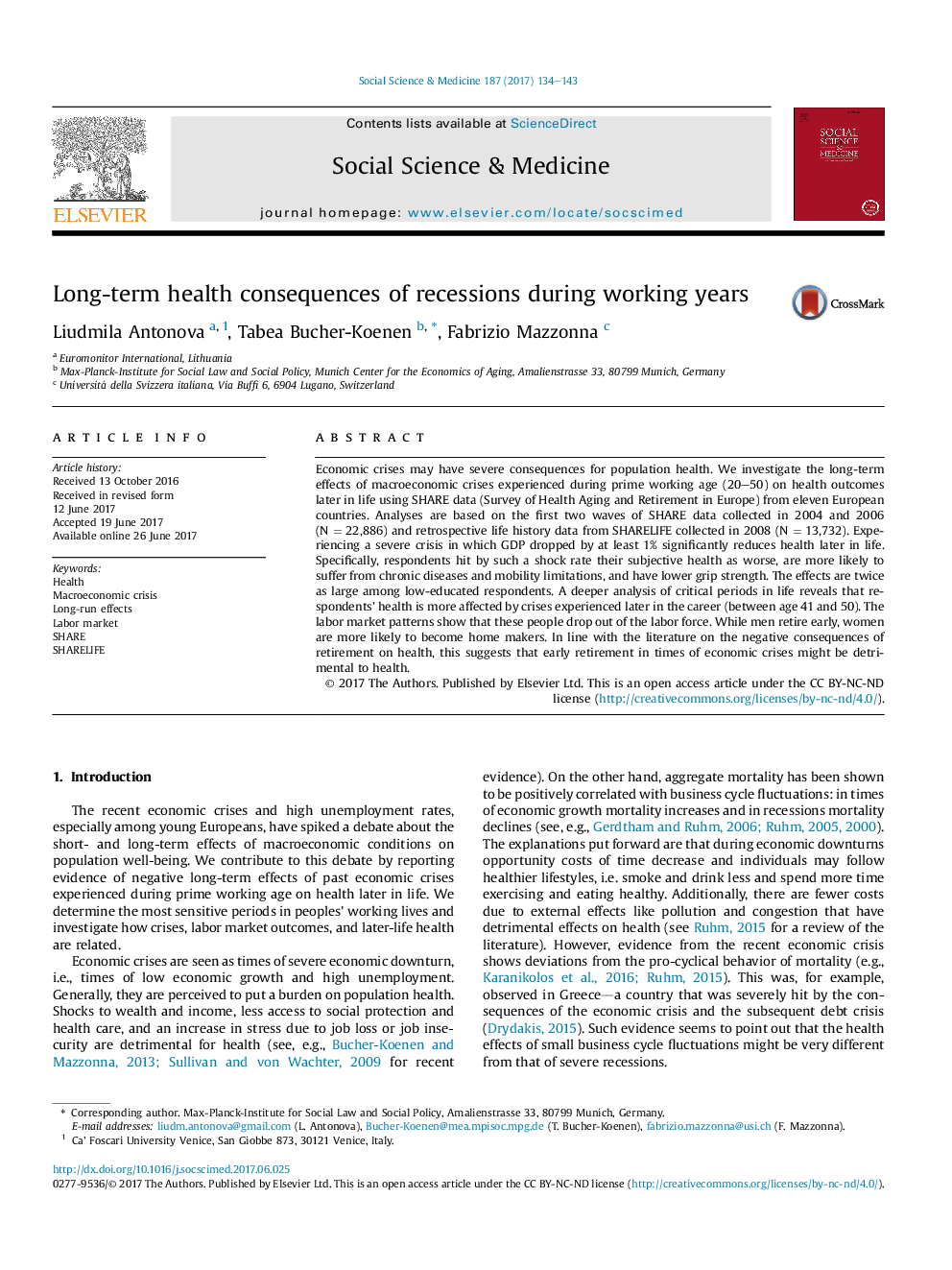| Article ID | Journal | Published Year | Pages | File Type |
|---|---|---|---|---|
| 5046470 | Social Science & Medicine | 2017 | 10 Pages |
â¢Recessions experienced during working years have negative effects on old age health.â¢The effect persists across various subjective and objective health measures.â¢Effects are twice as large for low educated people.â¢Only severe recessions experienced later in the career matter (age 40 and older).â¢These recessions are associated with early retirement and inactivity.
Economic crises may have severe consequences for population health. We investigate the long-term effects of macroeconomic crises experienced during prime working age (20-50) on health outcomes later in life using SHARE data (Survey of Health Aging and Retirement in Europe) from eleven European countries. Analyses are based on the first two waves of SHARE data collected in 2004 and 2006 (NÂ =Â 22,886) and retrospective life history data from SHARELIFE collected in 2008 (NÂ =Â 13,732). Experiencing a severe crisis in which GDP dropped by at least 1% significantly reduces health later in life. Specifically, respondents hit by such a shock rate their subjective health as worse, are more likely to suffer from chronic diseases and mobility limitations, and have lower grip strength. The effects are twice as large among low-educated respondents. A deeper analysis of critical periods in life reveals that respondents' health is more affected by crises experienced later in the career (between age 41 and 50). The labor market patterns show that these people drop out of the labor force. While men retire early, women are more likely to become home makers. In line with the literature on the negative consequences of retirement on health, this suggests that early retirement in times of economic crises might be detrimental to health.
